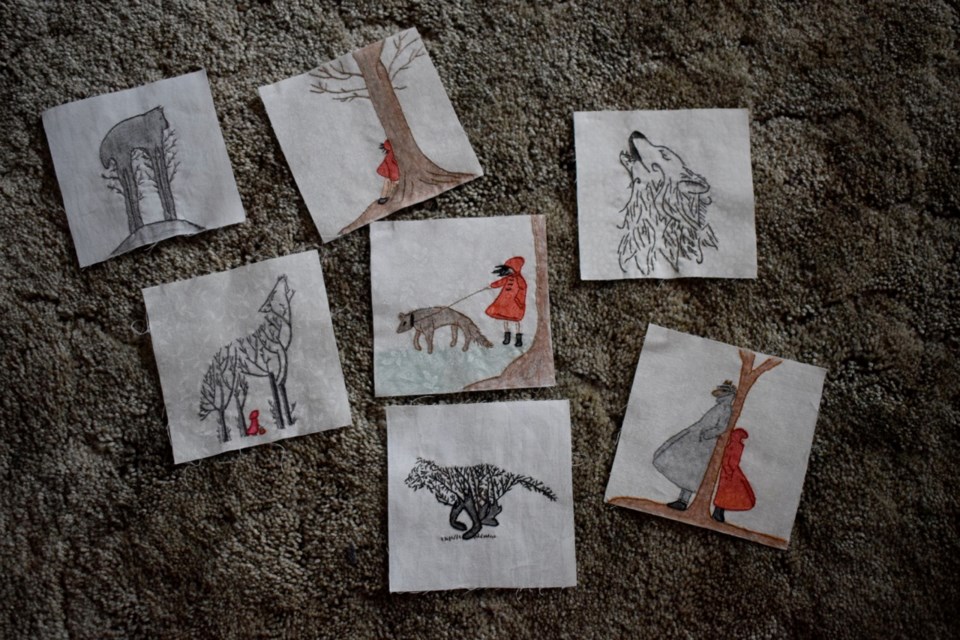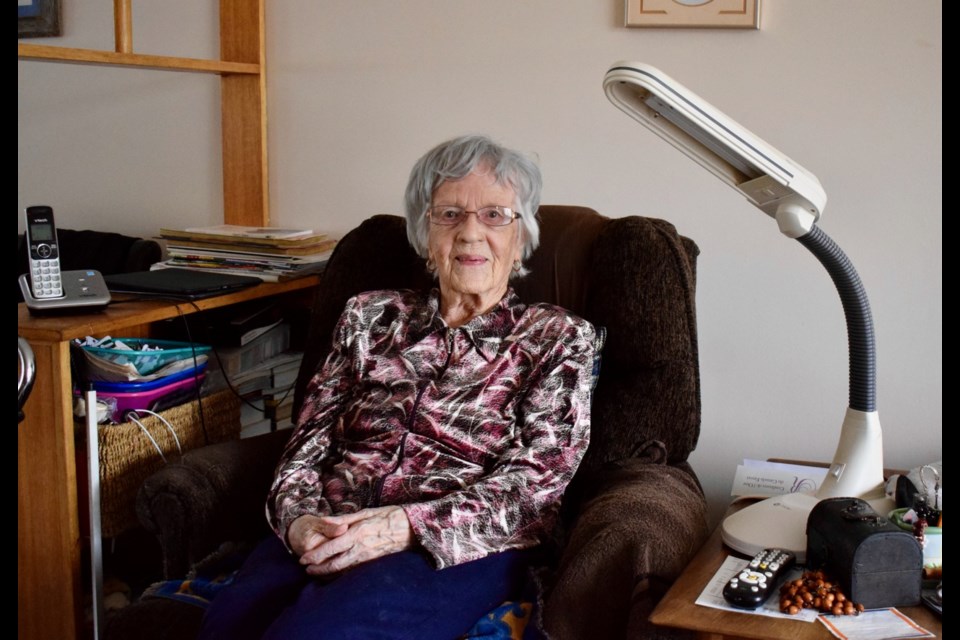Beautiful, strong and endlessly positive, Marie Dubreuil was sitting by the table surrounded by flowers. Finely dressed, with elegant golden earrings and dainty and kempt hands, no one would ever guess that this woman just celebrated her 100th birthday.
The celebration started with a visit from Mayor Roy Ludwig and continued on Aug. 20 with hundreds of calls, cards and emails from friends and family. Dubreuil has almost 60 descendants and there are now five generations alive.
On her birthday, women from her church came by and sang happy birthday by her windows, and so did some strangers who saw the balloons in her yard. Dubreuil also received a hat and a scarf from the Toronto Blue Jays baseball team, who she’s been a fan of for years.

The day would have looked totally different if not for the pandemic, but Dubreuil, who is more of a chamber person, enjoyed the big date celebration the way it was, surrounded by some of her closest family, and her best friend and companion cat Kiki.
Dubreuil's story started at Boussay, France. The family first came to Canada before the Great War, but when the war broke out her father has answered the call of duty and returned to fight, defending his homeland from the beginning to the end of the war, plus a year.
“They didn’t want all soldiers to leave at the same time, so he was out in 1919 instead of 1918,” Dubreuil said while sharing the beginning of her family history.
Marie, the first child, was born soon after that in 1920. When the girl was only two, the father once again decided to try to make his lifelong dream of becoming a farmer come true.
“Dad wanted to farm. And he couldn’t do it in France, because they only had small parcels of land and it was just too small for everybody. So he wanted to come to Canada and have a farm of his own, which he did,” said Dubreuil in the interview with the Mercury.
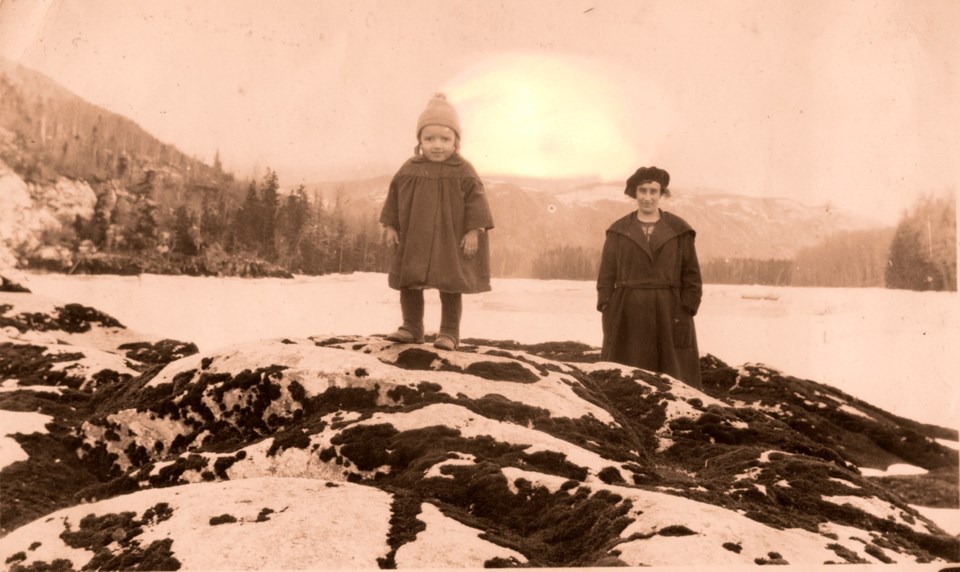
The family started on their journey that brought them first to British Columbia, where the father was cutting telephone posts and hauling them down the river for a living.
The family spent three or four years there, but they still didn’t give up on their dream, so soon they moved to Rose Valley, Sask. They first rented land there, but it didn’t suit them as it was too far from town and they moved to Tisdale to rent there.
“But he still wanted (to have) his own. Then homesteads became available at Mistatim west of Hudson Bay,” recalled Dubreuil.
That’s where Dubreuil and her other two siblings grew up. People around them were also homesteaders and everybody worked hard, so when asked if she remembered the times of the Great Depression, almost with dudgeon in her voice Dubreuil said no.
“Everybody had to chop trees and work the land, and everybody did that,” said Dubreuil. “We didn’t think about (being poor). We had enough to eat and a house and a bed to sleep in.”
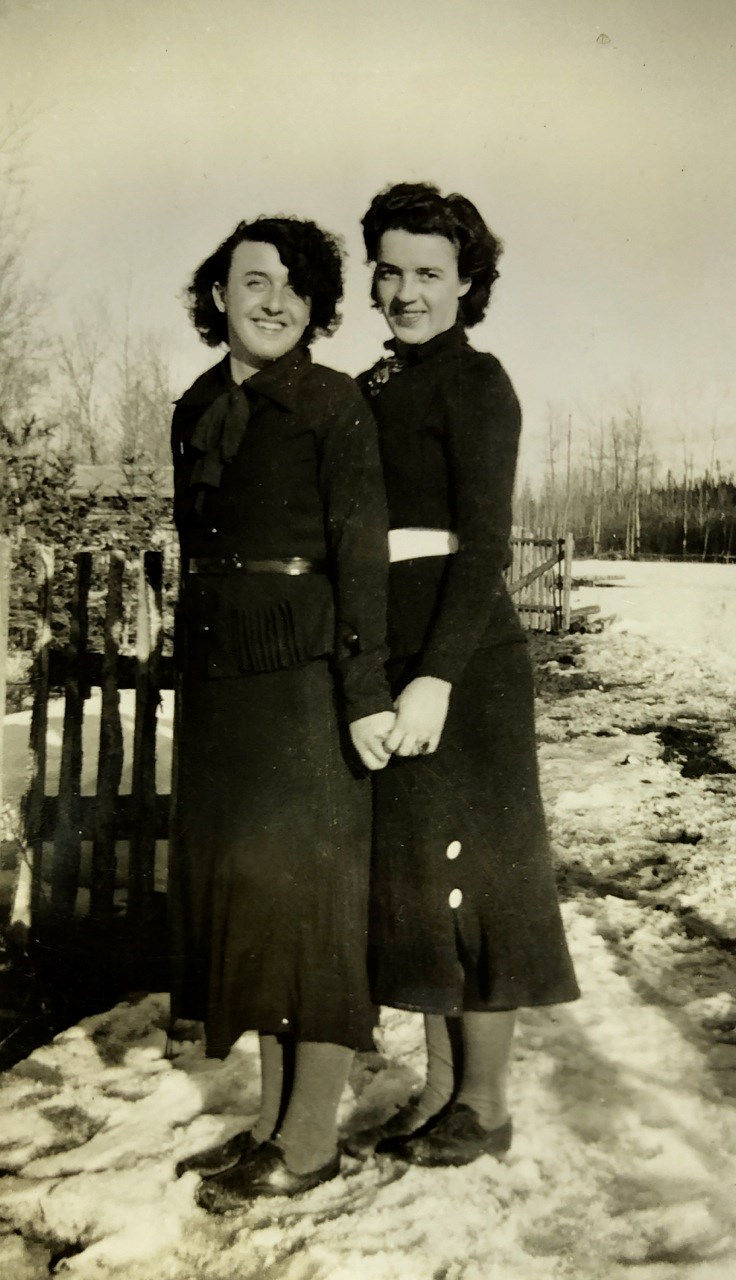
Firsthand Dubreuil saw the changes in life around her and the progress in farm equipment from threshing machines and plows to combines. The oldest child in the family, but still a very young girl, she would feed cattle, help her father with a plow out in the fields, get fuel from town using a horse and a cart and get water from a slew with one of the first tractors.
A soldier, their father was given the first quarter of land for free, and the second one he could buy for $10, which he did. And the kids would be the ones to pick roots cleaning the land and making it usable for seeding wheat, oats and barley.
“The land had to be opened up, done by hand and an ox,” said Dubreuil.
When Dubreuil turned 18, she went to work as a storekeeper in Tisdale. She soon married her first husband and when they were expecting their first child the Second World War broke out. A bad knee prevented Marie’s husband from joining Canadian troops and the entire war was almost like an echo.
“It was nothing drastic. A lot of friends went, and it was a big void,” said Dubreuil. “But everybody was doing their thing. Everybody was working.”
At the time, they were living and farming by Rose Valley, with a lot of work and with no radio at the farm they got to know the news from a weekly paper, which Dubreuil recalled as “very formal” and trustworthy.
“The world wasn’t like it is now with news,” said Dubreuil, adding that back then neighbours were much tighter, helped each other and relied on each other more, and the outside world was further than it is today. “I’d like to go back to that time.”
Even though they still had family in France, the war didn’t feel like something happening in their backyard. They kept going with life filled with work, doing their part.
The family had five children. Dubreuil became the first Canadian to deliver a baby on board of an ambulance airplane heading to Regina.
When the youngest child was just 16 months old and the oldest was only nine, the tragedy happened. Marie’s first husband was crushed and killed by a combine.
“Then I was alone with the kids. And I stayed on the farm. Where was I going to go with five kids?” recalled Dubreuil. “I stayed on the farm until they were ready to leave.”
In the first couple of years, she kept working the land and taking care of about a 60-head herd and milking eight to 10 cows all the time. Later she rented the land out, but she never gave up the cows. She learned how to drive and did everything it took to raise her children. And her daughter Josephine says that she’s never ever complained about anything or felt sorry for herself.
When the kids grew up, life brought her across a man she’d known from before, whose wife had also died. Marie moved to Estevan to live with her second husband in 1969. In contrast to the farm live, in Estevan Dubreuil felt like a queen, and she always appreciated it.
But only four years later her husband died of a heart attack.
“Then I was alone again, and I’ve been alone since.”
Dubreuil has lived in Estevan for over 50 years now and this half a century she calls the best time.
“It was the best time of my life here in Estevan. I just love it,” said Dubreuil. “My life here changed and people around were always nice to me.”
She added that for her Estevan is the perfect size of a city.
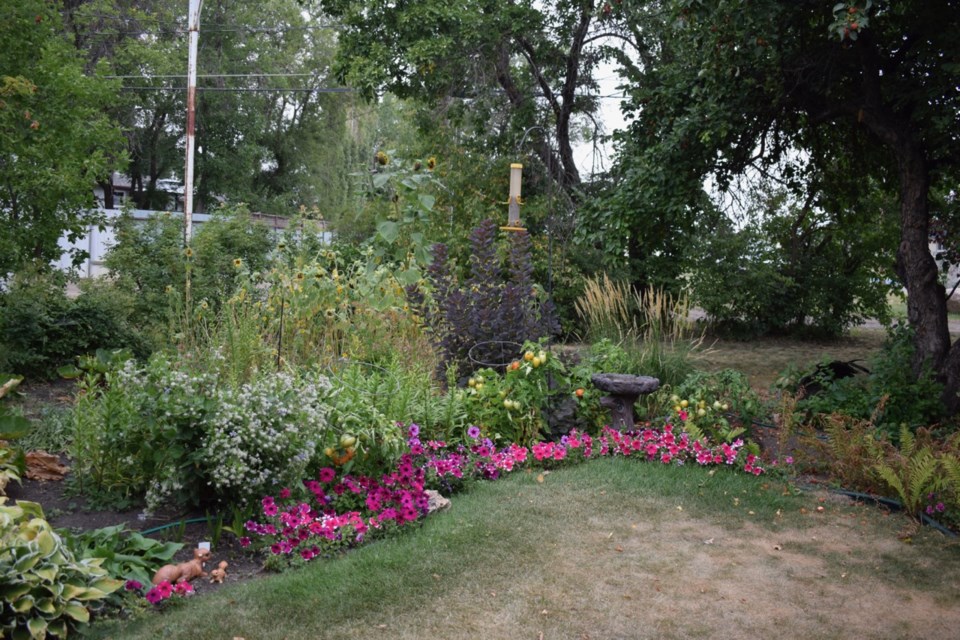
Stitching, sewing and quilting were always Dubreuil’s passions along with gardening. A few years ago she had to give up on most of it as it became too difficult for her to lift bigger items because of pain in her shoulder. But then she switched to embroidery. As of Aug. 27, she had 1,408 embroidered pieces that will be turned into wall hangers.
Dubreuil embroiders every day. She also spends some time on her iPad, reading books, news and emails, playing games and watching videos. And she never sleeps during the day.
When Dubreuil was 98 she had cataracts removed on both eyes. Now her usual glasses just make her feel comfortable, but when she does her daily embroidery, she doesn’t need them anymore. And after she celebrated her 99th birthday, Dubreuil adopted a stray kitten, which now escorts her anywhere she goes.
Up to these days, Dubreuil fluently speaks both English and French and watches mass in English during the week, and in French on Sundays. Dubreuil lives on her own and says she would never exchange her house for anything, and she would never leave Estevan. She’s seen the Energy City during both boom years and tough years, but she’s never changed her attitude towards it.
“For me, it was always good, just perfect.”
When asked what the secret to longevity was Dubreuil said, “Do whatever you love to do, whatever you are happy to do. I’m happy with what I’m doing, but if I didn’t have that I wouldn’t be so happy, I’d be sleeping. I wouldn’t be here.”
She added that her hobbies and her faith always made her happy.
Throughout the entire interview, Marie Dubreuil kept repeating that she was always “happy” and “just lucky” in her life.
